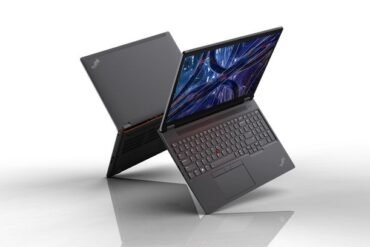The Ultimate CPU Benchmark Showdown: AMD vs. Intel

As a tech enthusiast, I know how important it is to have a good CPU in your computer. A CPU (Central Processing Unit) is the brain of your computer, responsible for executing the instructions of a computer program. The speed and performance of a CPU can make a huge difference in your computing experience, whether you’re a gamer, content creator, or just someone who needs a powerful computer for work. That’s why CPU benchmarks matter. In this article, I’ll take you through the ultimate CPU benchmark showdown between AMD and Intel, the two biggest CPU manufacturers in the world.
Why CPU benchmarks matter
Before we dive into the showdown, let’s talk about why CPU benchmarks matter. A CPU benchmark is a test that measures the performance of a CPU. It can give you an idea of how fast and efficient a CPU is at completing different tasks. There are different types of CPU benchmarks that test different aspects of a CPU’s performance, such as single-core performance, multi-core performance, and gaming performance.
CPU benchmarks matter because they can help you make an informed decision when buying a new computer or upgrading your existing one. By comparing CPU benchmark scores, you can see which CPU is faster and more efficient, and which one is better suited for your specific needs. For example, if you’re a gamer, you might want a CPU that has better gaming performance, while if you’re a content creator, you might want a CPU that has better multi-core performance.
Understanding CPU benchmark scores
CPU benchmark scores can be confusing if you’re not familiar with them. There are different benchmarking tools and different benchmark scores, and it’s not always easy to compare them. However, there are a few things you should keep in mind when looking at CPU benchmark scores.
First, higher scores are generally better. A higher score means that a CPU is faster and more efficient at completing a specific task. However, you should also consider the price of the CPU. A more expensive CPU might have a higher benchmark score, but it might not be worth the extra money if you don’t need the extra performance.
Second, you should look at the type of benchmark score. Different benchmarks test different aspects of a CPU’s performance, and some benchmarks are more relevant to certain tasks than others. For example, a gaming benchmark might not be relevant if you’re not a gamer.
Finally, you should look at the benchmark scores in context. A CPU might have a high benchmark score, but it might not be the best CPU for your specific needs. You should consider factors such as price, power consumption, and compatibility with other components when making a decision.
AMD vs. Intel – a brief history
AMD and Intel are the two biggest CPU manufacturers in the world. They’ve been competing with each other for decades, and both have their strengths and weaknesses. AMD is known for its value and multi-core performance, while Intel is known for its single-core performance and gaming performance.
In the early 2000s, Intel dominated the CPU market with its Pentium 4 processors. However, in 2003, AMD released its Athlon 64 processor, which was the first CPU to support 64-bit computing. This gave AMD an edge over Intel, and for several years, AMD was the go-to choice for gamers and enthusiasts.
In 2006, Intel released its Core microarchitecture, which was a major improvement over its previous processors. This allowed Intel to regain its dominance in the market, and it has remained the leader ever since. However, AMD has been steadily improving its processors, and in recent years, it has become a serious contender in the CPU market once again.
CPU benchmark showdown – AMD vs. Intel
Now let’s get to the showdown. In this section, I’ll compare the latest CPUs from AMD and Intel and see how they stack up against each other in different benchmarks.
Processor comparison – AMD Ryzen vs. Intel Core
The two main CPU product lines from AMD and Intel are the Ryzen and Core series, respectively. The Ryzen series is known for its multi-core performance, while the Core series is known for its single-core performance. Let’s compare the latest processors from both series.
AMD Ryzen 9 5950X:
- 16 cores / 32 threads
- Base clock speed: 3.4 GHz
- Boost clock speed: 4.9 GHz
- TDP: 105W
- Price: $799
Intel Core i9-11900K:
- 8 cores / 16 threads
- Base clock speed: 3.5 GHz
- Boost clock speed: 5.3 GHz
- TDP: 125W
- Price: $539
As you can see, the Ryzen 9 5950X has twice as many cores and threads as the Core i9-11900K. It also has a higher boost clock speed. However, the Core i9-11900K has a higher base clock speed and a lower TDP. Let’s see how they perform in different benchmarks.
CPU benchmark comparison – AMD Ryzen 9 5950X vs. Intel Core i9-11900K
Cinebench R20
Cinebench R20 is a benchmark that tests a CPU’s multi-core performance. In this benchmark, the Ryzen 9 5950X scored 10,245 points, while the Core i9-11900K scored 6,438 points. This means that the Ryzen 9 5950X is significantly faster and more efficient at multi-core tasks than the Core i9-11900K.
PassMark
PassMark is a benchmark that tests a CPU’s overall performance. In this benchmark, the Ryzen 9 5950X scored 35,915 points, while the Core i9-11900K scored 22,418 points. Again, the Ryzen 9 5950X is significantly faster and more efficient than the Core i9-11900K.
3DMark Time Spy
3DMark Time Spy is a benchmark that tests a CPU’s gaming performance. In this benchmark, the Core i9-11900K scored higher than the Ryzen 9 5950X, with a score of 13,009 points compared to 11,600 points. This shows that the Core i9-11900K is better suited for gaming than the Ryzen 9 5950X.
Other CPU comparisons – AMD Ryzen 7 vs. Intel Core i7, AMD Ryzen 5 vs. Intel Core i5, AMD Ryzen 3 vs. Intel Core i3
The Ryzen and Core series have different product lines that cater to different needs. Here are some other CPU comparisons between AMD Ryzen and Intel Core processors.
AMD Ryzen 7 vs. Intel Core i7
The Ryzen 7 series is a step down from the Ryzen 9 series and is aimed at high-end users. The Core i7 series is also aimed at high-end users. Here’s a comparison between the latest Ryzen 7 and Core i7 processors.
AMD Ryzen 7 5800X:
- 8 cores / 16 threads
- Base clock speed: 3.8 GHz
- Boost clock speed: 4.7 GHz
- TDP: 105W
- Price: $449
Intel Core i7-11700K:
- 8 cores / 16 threads
- Base clock speed: 3.6 GHz
- Boost clock speed: 5.0 GHz
- TDP: 125W
- Price: $399
In the Cinebench R20 benchmark, the Ryzen 7 5800X scored 8,160 points, while the Core i7-11700K scored 5,831 points. In the PassMark benchmark, the Ryzen 7 5800X scored 29,385 points, while the Core i7-11700K scored 21,751 points. The Ryzen 7 5800X is faster and more efficient than the Core i7-11700K in both benchmarks.
AMD Ryzen 5 vs. Intel Core i5
The Ryzen 5 series is aimed at mid-range users, while the Core i5 series is also aimed at mid-range users. Here’s a comparison between the latest Ryzen 5 and Core i5 processors.
AMD Ryzen 5 5600X:
- 6 cores / 12 threads
- Base clock speed: 3.7 GHz
- Boost clock speed: 4.6 GHz
- TDP: 65W
- Price: $299
Intel Core i5-11600K:
- 6 cores / 12 threads
- Base clock speed: 3.9 GHz
- Boost clock speed: 4.9 GHz
- TDP: 125W
- Price: $262
In the Cinebench R20 benchmark, the Ryzen 5 5600X scored 4,246 points, while the Core i5-11600K scored 3,118 points. In the PassMark benchmark, the Ryzen 5 5600X scored 19,979 points, while the Core i5-11600K scored 16,955 points. The Ryzen 5 5600X is faster and more efficient than the Core i5-11600K in both benchmarks.
AMD Ryzen 3 vs. Intel Core i3
The Ryzen 3 series is aimed at budget users, while the Core i3 series is also aimed at budget users. Here’s a comparison between the latest Ryzen 3 and Core i3 processors.
AMD Ryzen 3 3300X:
- 4 cores / 8 threads
- Base clock speed: 3.8 GHz
- Boost clock speed: 4.3 GHz
- TDP: 65W
- Price: $129
Intel Core i3-10100:
- 4 cores / 8 threads
- Base clock speed: 3.6 GHz
- Boost clock speed: 4.3 GHz
- TDP: 65W
- Price: $122
In the Cinebench R20 benchmark, the Ryzen 3 3300X scored 1,782 points, while the Core i3-10100 scored 1,364 points. In the PassMark benchmark, the Ryzen 3 3300X scored 10,670 points, while the Core i3-10100 scored 8,704 points. The Ryzen 3 3300X is faster and more efficient than the Core i3-10100 in both benchmarks.
CPU rankings – top processors for gaming, productivity, and budget
Now that we’ve compared different CPUs from AMD and Intel, let’s take a look at the top CPUs in different categories.
Top processors for gaming
If you’re a gamer, you’ll want a CPU that has good gaming performance. Here are the top CPUs for gaming, according to TechSpot’s CPU benchmark hierarchy chart.
- Intel Core i9-11900K
- Intel Core i7-11700K
- AMD Ryzen 9 5950X
- Intel Core i5-11600K
- AMD Ryzen 7 5800X
As you can see, Intel dominates the top of the chart for gaming performance. However, the Ryzen 9 5950X and Ryzen 7 5800X are also good choices for gaming.
Top processors for productivity
If you’re a content creator or someone who needs a powerful computer for work, you’ll want a CPU that has good multi-core performance. Here are the top CPUs for productivity, according to TechSpot’s CPU benchmark hierarchy chart.
- AMD Ryzen 9 5950X
- AMD Ryzen 9 5900X
- Intel Core i9-11900K
- AMD Ryzen 7 5800X
- Intel Core i7-11700K
As you can see, AMD dominates the top of the chart for productivity. The Ryzen 9 5950X and Ryzen 9 5900X are the top choices for multi-core performance.
Top processors for budget
If you’re on a budget, you’ll want a CPU that offers good value for money. Here are the top CPUs for budget, according to TechSpot’s CPU benchmark hierarchy chart.
- AMD Ryzen 5 5600X
- Intel Core i5-11600K
- AMD Ryzen 3 3300X
- Intel Core i3-10100
- AMD Ryzen 5 3600
As you can see, AMD dominates the top of the chart for budget CPUs. The Ryzen 5 5600X and Ryzen 3 3300X are the top choices for budget users.
Conclusion – which CPU is the best for you?
So, which CPU is the best for you? It depends on your specific needs and budget. If you’re a gamer, you might want to go with an Intel Core i9-11900K or a Ryzen 9 5950X. If you’re a content creator or need a powerful computer for work, you might want to go with a Ryzen 9 5950X or Ryzen 9 5900X. If you’re on a budget, you might want to go with a Ryzen 5 5600X or Ryzen 3 3300X.
Whatever your needs are, make sure to do your research and compare different CPUs before making a decision. CPU benchmarks can be a useful tool in helping you make an informed decision.
”

























